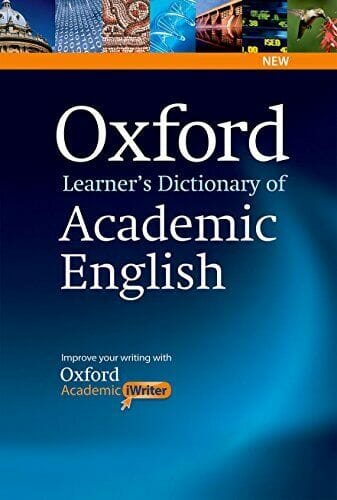
Oxford University Press launched their Learner’s Dictionary of Academic English last Saturday, and LanguageUK was present – in force!
Is it worth buying a dictionary of academic English, especially if you have just spent a lot of money on an advanced learner’s dictionary?
How is academic English different from normal English?
The editor of Oxford’s new dictionary, Dianna Lea, gave an excellent talk that helped to answer this question. Words that you think you know mean something different when they are used in academic or specialist contexts.
Dr Lea gave several examples, but one in particular makes the point. We all know what ‘table’ means. It is one of the first words that we learn in English. But if you use a computer to read a huge sample of academic texts, you will find that the most common type of ‘table’ mentioned is the one that contains data.
You will also find that in an ordinary dictionary, the word ‘on’ is a good one to use with ‘table’ (he put his books on the table). In the academic dictionary, it is the words ‘above’,’below’ and ‘in’ that need to be learnt:
- The table below/above gives figures for output
- The numbers in the table refer to ….
Like all dictionaries, this one helps with collocations, but specifically academic ones.
What words are in the dictionary?
The dictionary defines words that are used across many different subject areas, with good examples from academic sources. They could be called ‘general academic’ vocabulary. The focus of the dictionary is not specialist ‘technical vocabulary’ (though this is covered when necessary).
How was the dictionary created?
The dictionary was created by processing a huge database of 85 million words from university textbooks and academic journals. These are the kinds of reading to be found on university reading lists and in IELTS reading tests.
Diana Lea’s team spoke to teachers and students before they wrote the dictionary. They learned that what causes most problems for EAP students is ‘academic writing’. The design of the dictionary is intended to help with this problem. In addition to the dictionary entries, there is a long reference section. It includes a ‘writing tutor’ with model texts to help you to structure and write your essays, reports and theses.
Will I find this dictionary useful?
So this dictionary is aimed especially at students of all subjectswho are reading academic textbooks and writing academic texts in English even though it is not their native language. You will find it very useful if you are:
- studying to take the IELTS exam
- on a pre-sessional course- on a university foundation course
- taking an undergraduate or masters course
- writing academic papers in English in your field of specialisation
We have not seen any similar dictionary, and Oxford say that they believe it is the first of its kind. It is well-produced, with excellent ‘extras’. These include a CD ROM with writing tutor and word lists divided into four areas of academic study: physical sciences, life sciences, social sciences and arts and humanities.
More information about Oxford Learner’s Dictionary of Academic English on the company’s website at
https://elt.oup.com/catalogue/items/global/dictionaries/9780194333504?cc=gb&selLanguage=en















